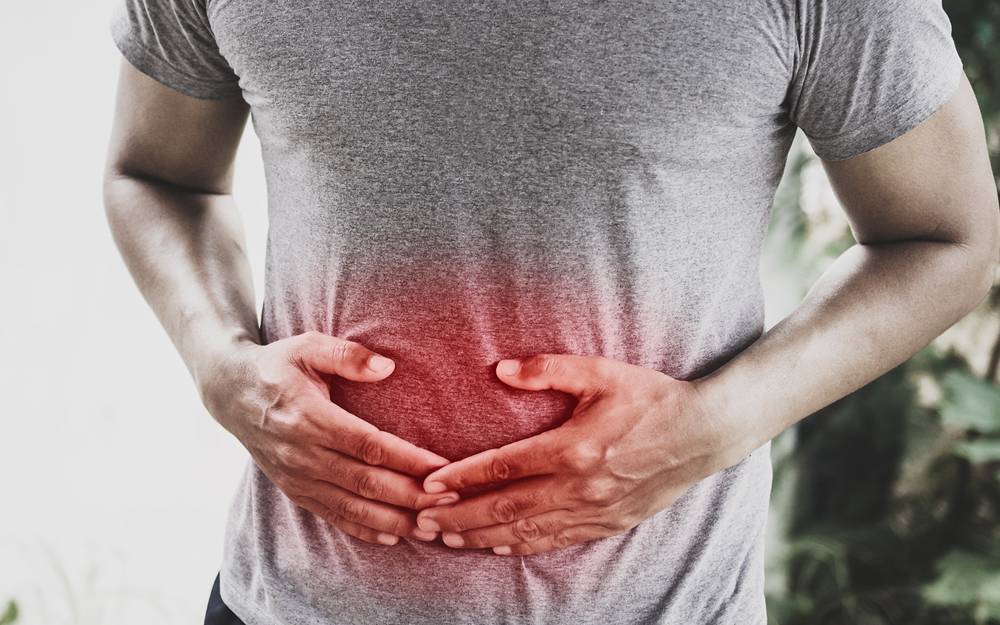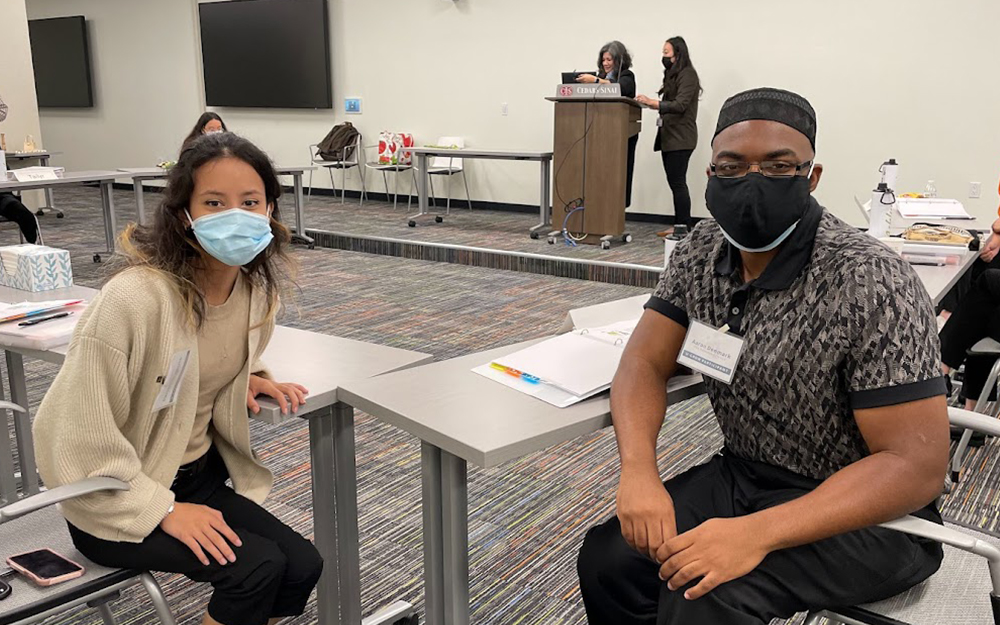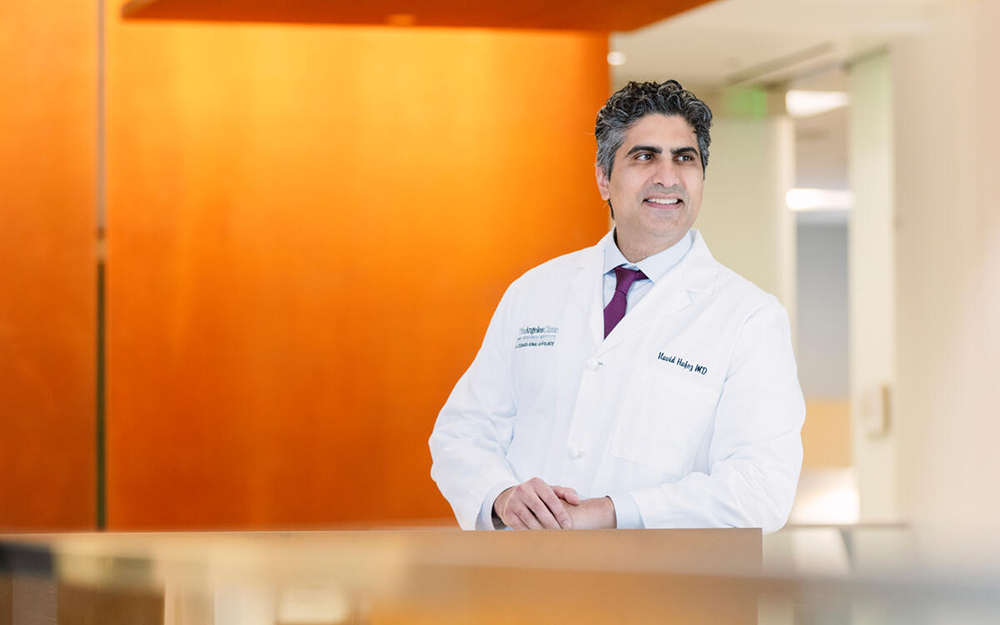7 Tips to Reduce Your Breast Cancer Risk
Date
October 24, 2023

Date
October 24, 2023
Credits
Medical providers featured in this article

In Brief
{{cta-block}}
Nearly 300,000 Americans, mostly women, will be diagnosed with breast cancer in 2023. With Breast Cancer Awareness Month kicking off in October, you may be wondering what you can do to tip the scales toward sidestepping the disease.
“Only about 30% of breast cancers have a strong genetic link,” said Patricia Thompson, PhD, co-director of the Cancer Prevention and Control Program, which is part of the Samuel Oschin Comprehensive Cancer Institute at Cedars-Sinai. “That leaves about 70% of breast cancers linked to other factors, some of which are modifiable.”
No one has zero risk of developing breast cancer, and the first step toward risk management and reduction is to learn about your risk factors.
“It’s time for us to take our power back and recognize that advocating for our health is our responsibility."
Breast Cancer Risk Factors You Can’t Change
Nearly everyone has certain factors that increase their odds of developing breast cancer, and some of these factors are fixed, meaning you can’t change them. These include:
- Age
- Being born female
- Inheriting certain genetic mutations
- Having a family or personal history of breast cancer
- Having dense breast tissue
- Starting menstruation early
- Going through menopause late
Having one or more risk factors does not mean you will get the disease, and not all risk factors for breast cancer are fixed. In fact, it turns out there are several ways to reduce your chances of developing or dying from breast cancer, even when the odds aren’t in your favor.
Tips to Reduce Your Breast Cancer Risk
Managing your risk of developing breast cancer can feel overwhelming. But whether you have a genetic susceptibility to the disease or not, there are plenty of things you can do to safeguard your health.
Be proactive
Screening won’t reduce your risk of developing breast cancer, but it can improve your chances of a good outcome if you are diagnosed. If you have a family history of breast cancer or other risk factors that predispose you to the disease, talk to your doctor about putting together a screening and surveillance program that’s tailored to your unique needs. If you have dense breasts, for example, it’s important to develop an awareness of what the tissue feels like so you can check in with your doctor if you notice changes.
Expert tip: “Women with a family history of breast cancer should check in with their doctors about 10 years before the age at which their family member was diagnosed,” Thompson said. She also added that if your mother or sister were diagnosed with breast cancer before they turned 50, ask whether or not they carry any of the genes associated with increased breast cancer risk and talk with your doctor about genetic testing.
Limit estrogen exposure
About 80% of breast cancers are estrogen receptor positive, meaning estrogen fuels the cancer. Extended exposure to estrogen from oral contraceptives or long-term hormone replacement therapy (HRT) may increase breast cancer risk. “For women at increased risk of breast cancer, taking drugs that block estrogen, such as Tamoxifen and Raloxifene, can dramatically reduce their risk of developing hormone-receptor-positive breast cancer, but they come with side effects,” Thompson said. Side effects can include menopause-like symptoms, including hot flashes.
Expert tip: Load up on fiber, especially cruciferous vegetables. “There’s long-standing evidence that high-fiber diets can help maintain normal weight, lower estrogen exposure and provide important phytonutrients with anti-cancer activity,” Thompson said.
Maintain a healthy weight
Being overweight, particularly after menopause, increases your risk of developing breast cancer. The reason, in part, is because once the ovaries stop making estrogen, fat cells step in. The more fat tissue you have, the more estrogen you produce, which can create a more welcoming environment for breast cancer. Being overweight is also linked with higher levels of growth factors, such as insulin, which can encourage tumor development.
Expert tip: Eat a balanced, anti-inflammatory diet rich in fruits, vegetables, whole grains, nuts and seeds, and maintain a healthy weight. Avoid sugar-sweetened beverages and other sugar-dense items, which increase your risk of obesity and cancer. Thompson also advises avoiding processed and packaged nutrient-poor foods in favor of nutrient-rich whole foods. And be sure to get plenty of exercise.
Get sober curious
The latest research suggests that your daily glass of wine may interfere with your cancer prevention efforts. According to the National Cancer Institute, even modest amounts of alcohol may increase your risk of breast cancer, particularly the hormone-sensitive type. Plus, research suggests that alcohol damages DNA and interferes with DNA repair.
Expert tip: You don’t have to avoid alcohol altogether, but according to Thompson, it’s a good idea to limit your intake to one 5-ounce glass of wine (or one 12-ounce bottle of beer) daily if you’re a woman and two if you’re a man.
Pay attention to your sleep cycle
The timing and quality of your sleep plays an important role in bolstering your immune system and supporting your metabolic health. Maintaining an insufficient or erratic sleep schedule can result in metabolic changes that affect body composition and impair the immune system.
Expert tip: Wake up and go to sleep at the same time each day and close your kitchen a few hours before bedtime. That way your body can focus on repairing damaged cells, instead of digestion, while you’re sleeping. “Eating big meals early in the day helps, too, since our bodies are designed to digest during the day and rest at night,” Thompson said.
Drink more water
Many people are in a near-constant state of dehydration. Unfortunately, when you don’t drink enough fluid, your body gets the message to eat more food (all foods hold water in varying amounts). “Theoretically, staying hydrated will help control your appetite and may also help you eliminate toxins from the body, since it keeps things moving through your digestive tract,” Thompson said.
Expert tip: “Swap out sugary beverages and alcohol for water, and aim to drink about half your body weight in ounces every day, starting your day with 12 ounces of water.” Thompson said. So, if you weigh 140 pounds, try to sip 70 ounces of water daily.
Take care of your gut
The gut microbiome is home to myriad healthy bacteria that crowd out potentially harmful microbes. The best thing you can do to support a healthy microbiome is eat a wide variety of colorful whole foods. “Unfortunately, many of us eat the same foods every day. Mixing it up a bit with healthy foods is good for the gut and your immune system,” Thompson said.
Expert tip: Populate your gut with healthy bacteria by loading up on a rainbow of fruits and vegetables, as well as foods that boast “good bacteria,” such as plain Greek yogurt, kefir, sauerkraut, almonds, greens, bananas, garlic and whole grains. “Eating foods that are local and in season can also ensure you’re getting more variety in your diet,” Thompson said.
Even if you follow all of these strategies, there’s no guarantee you won’t develop breast cancer. But in an era filled with choices that can boost or reduce your odds of developing cancer, taking steps to prioritize your health is a sound strategy.
“It’s time for us to take our power back and recognize that advocating for our health is our responsibility,” Thompson said.





